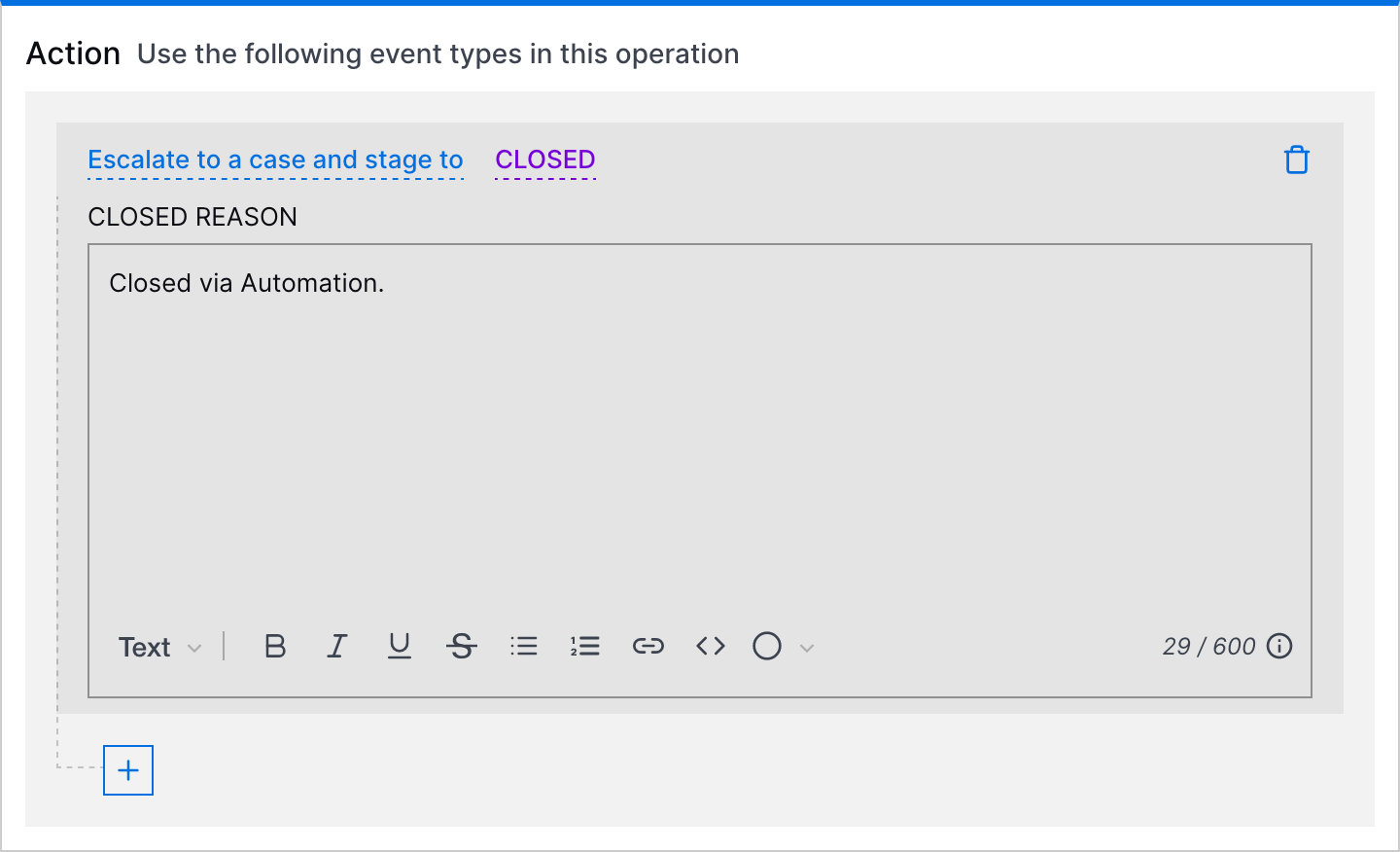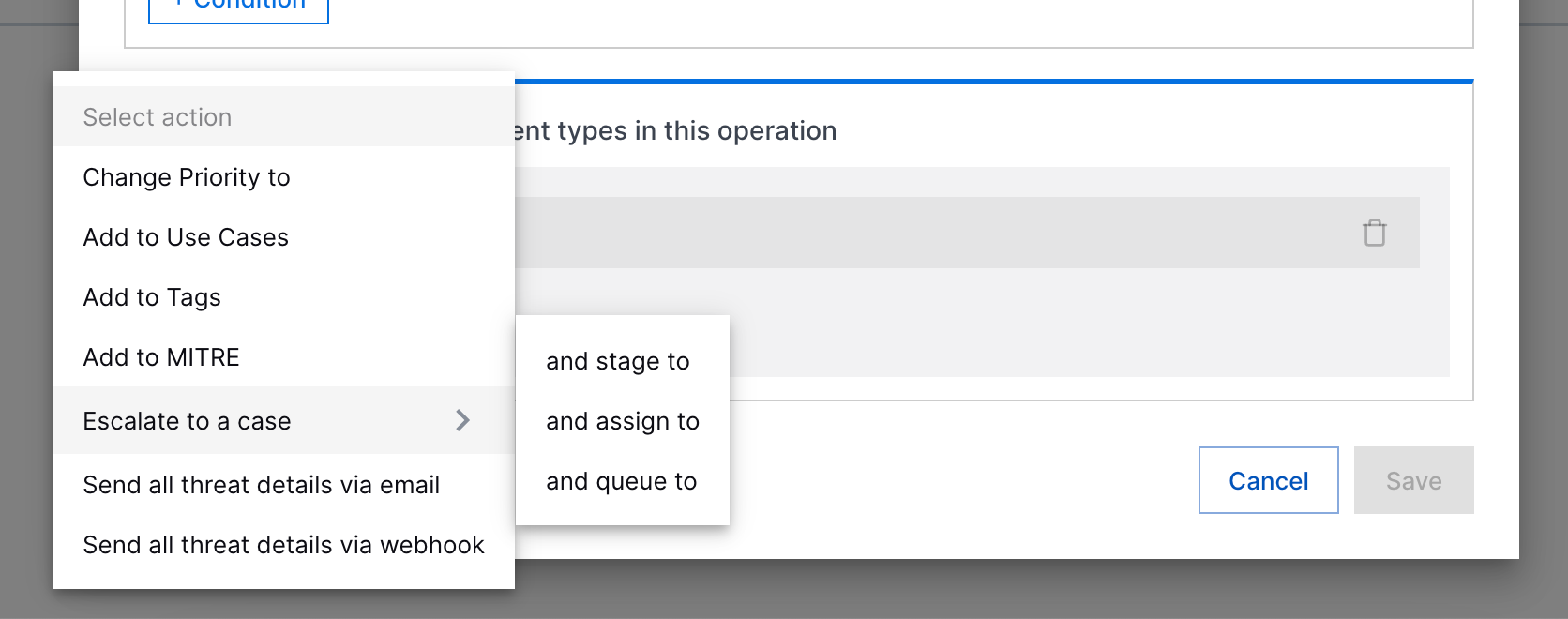Automation Management Features Introduced in 2024
November 2024
This release does not include new features for Automation Management.
October 2024
This release does not include new features for Automation Management.
September 2024
This release does not include new features for Automation Management.
August 2024
This release does not include new features for Automation Management.
July 2024
This release does not include new features for Automation Management.
June 2024
This release does not include new features for Automation Management.
May 2024
The following features were introduced in Automation Management in May 2024:
Feature | Description |
|---|---|
Case Closed Reason in Playbook Notification Actions | To ensure recipients understand why an Automation Management playbook closed a case, the case closed reason is now included in the messages sent using the Send all threat details via email and Send all threat details via webhook playbook actions. |
April 2024
The following features were introduced in Automation Management in April 2024:
Feature | Description |
|---|---|
Case Closed Reason in Playbooks | To ensure everyone understands why an Automation Management playbook closed a case, you must now enter the reason why the case is closed when you create a playbook with the Escalate to a case > and stage to action and set the stage to Closed. By default, the reason entered is Closed via Automation. In the case attribute summary, the closed reason appears with the Closed stage.  |
Custom Queue Assignment During Playbook Creation | You can now automatically assign a case to a custom queue using the playbook Escalate to a case > and queue to action. When the playbook triggers, it creates a case from the alert and assigns the case to the custom queue. |
Custom Case Stage Assignment During Playbook Creation | You can now automatically assign a case to a custom stage using the playbook Escalate to a case > and stage to action. When the playbook triggers, it creates a case from the alert and assigns the case to the custom stage. |
March 2024
The following features were introduced in Automation Management in March 2024:
Feature | Description |
|---|---|
Playbook History | You can now track changes made to a playbook. In the playbook history, view what changes were made, who made the change, and when the change was made.  |
Playbook Escalate to Case Sub-Actions | You can now escalate an alert to a case and execute actions on the resulting case in the same playbook. When you select Escalate to a case as an action, you must set the case stage, assign to a person, or assign to a queue.  |
February 2024
The following features were introduced in Automation Management in February 2024:
Feature | Description |
|---|---|
Introducing Automation Management | Welcome to Automation Management, the security orchestration, automation, and response (SOAR) solution you use to create and manage your automation tools. Automation Management is supported with an Exabeam Fusion, Exabeam Security Investigation, or Exabeam SIEM license. To get started with Automation Management, view the Automation Management documentation. |